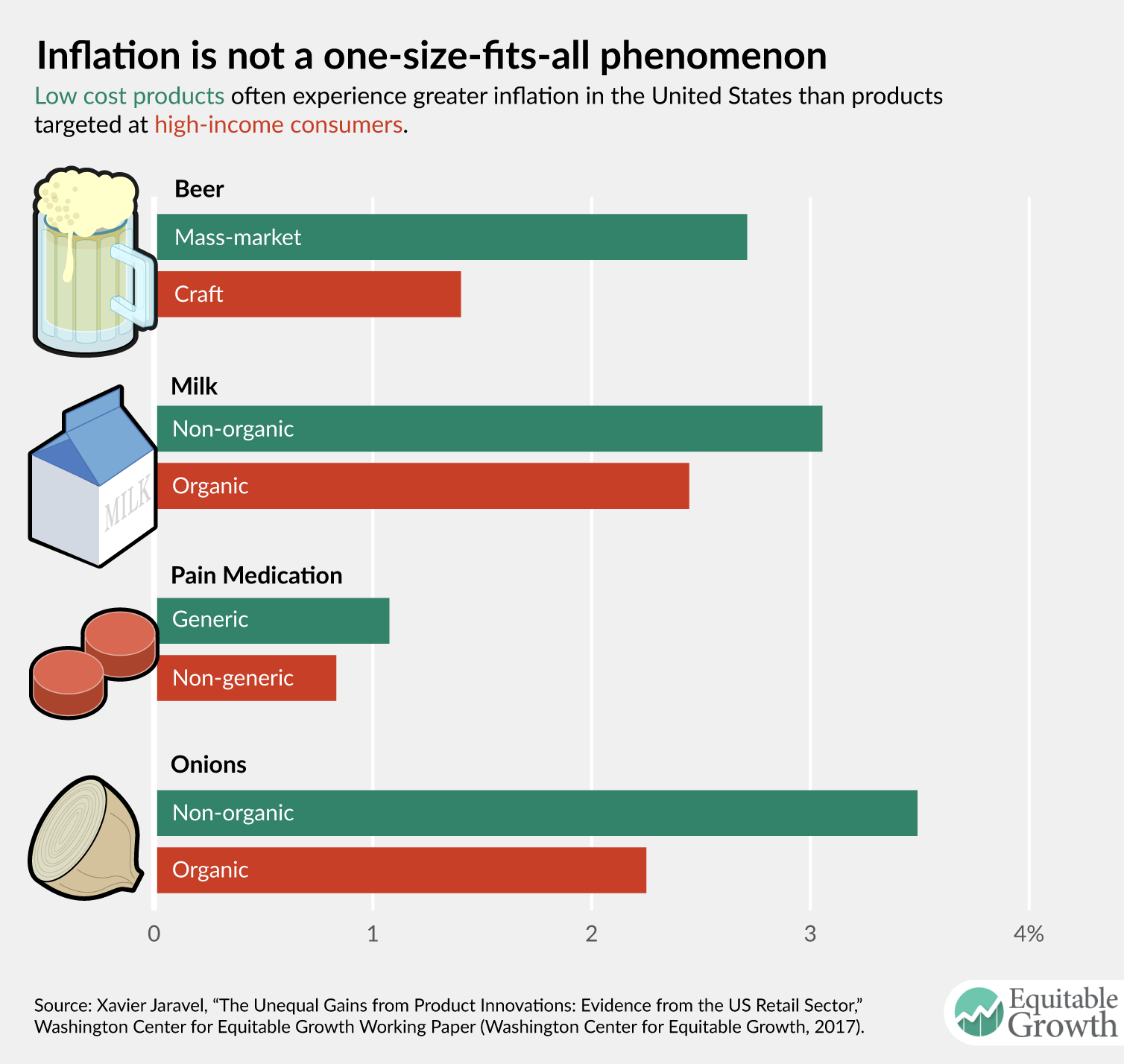Weekend Reading: “the luck of the Irish” edition
This is a weekly post we publish on Fridays with links to articles that touch on economic inequality and growth. The first section is a round-up of what Equitable Growth published this week and the second is the work we’re highlighting from elsewhere. We won’t be the first to share these articles, but we hope by taking a look back at the whole week, we can put them in context.
Equitable Growth round-up
Many Americans think of college as a great beacon of upward mobility in the United States. Kavya Vaghul takes a look at research that gives policymakers conflicting evidence of whether this is actually the case. Vaghul also notes that scholars have failed to look at an equally important dimension of this question: race and ethnicity.
Elisabeth Jacobs writes about new research suggesting that universal pre-K programs, rather than targeted programs, do a better job at serving low-income students.
What does the craft beer craze have to do with inequality? New research by Equitable Growth grantee Xavier Jaravel, a post-doctoral fellow in economics at Stanford University, finds that firms focused their innovation on products that cater to high-income households, such as the explosion in different kinds of craft beer. Lower-income products, however, face less competitive pressures and have therefore experienced a higher rate of inflation. There’s other research highlighting the potential of rising inflation inequality in the United States.
Speaking of inflation, Nick Bunker looks at how common-sense views of inflation and its determinants affected the Fed’s decision to raise interest rates, and why that view may not make sense.
Trump’s economic doctrine may not work when it comes to the actual policy specifics, but Heather Boushey writes in The Atlantic about the psychological and emotional appeal of such a doctrine in that “it answers the core question that millions have about economic policy […]: What about me?”
The montly data release from the Job Openings and Labor Turnover Survey was Thursday. Check out some key graphs from the new data.
And because it’s St. Patrick’s Day, a look back at a piece written last year by Matt Markezich on what Ireland’s spectacular economic growth reveals about corporate tax avoidance.
Links from around the web
Tanvi Misra looks at a new interactive created by Texas Christian University’s Kyle Walker that shows the distribution of the U.S. population by educational attainment. The maps show the extent to which, in urban areas, the achievement gap is associated with racial and economic segregation. [citylab]
If the proposed U.S. border tax adjustment blueprint reduces U.S. imports and promotes U.S. exports in a way that violates international trade rules, it could put pressure on U.S. trading partners to retaliate. Chad P. Brown argues that any overhaul of the tax system, therefore, should take a closer look at the international affects of the policy. [piie]
Neel Kashkari, President of the Minneapolis Fed, was alone in voting to keep interest rates steady at the Federal Open Market Committee’s meeting earlier this week. He provides an explanation. [medium]
In his address to Congress, President Trump cited a report released by the National Academy of Sciences to claim that immigration harms the U.S. economy. Cornell University’s Francine Blau, an editor of the report, and University of California-Berkeley’s Gretchen Donehower, who served as a consultant, say that the report actually finds that the economic and fiscal consequences of immigration are generally positive. [vox]
Some of the best academic ideas are secluded from the public domain in journals read largely by other academics. Savo Heleta looks at why academics are not doing more to share their ideas with the broader public. [the conversation]
Friday Figure

From “Product innovations and inflation in the U.S. retail sector have magnified inequality” by Xavier Jaravel

